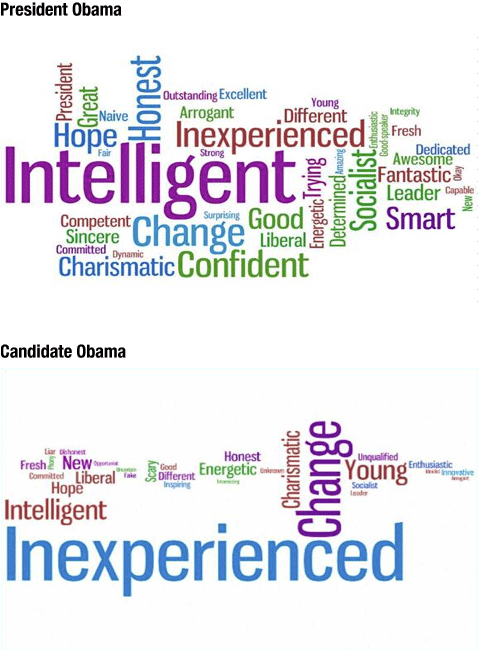Are Democratic politicians tone-deaf to the extent indicated in the article? Is their inability to understand human behavior - and the American electorate - this pervasive? How do presentations that would be greeted with a dismissive shrug by the general public repeatedly produce "A-ha!" responses from gatherings of our politicians?
What is 2008's "Big Idea?"
The article, "Counseling Democrats to Go For the Gut" discusses the rave reviews Democratic leaders are giving to Emory University psychology professor Drew Westen's recent book, "The Political Brain: The Role of Emotion in Deciding the Fate of the Nation." Why all the raves?
Dr. Westen takes the unlikely position that the Democratic Party should, for the most part, forget about issues, policies, even facts, and instead focus on feelings.
What he calls “the dispassionate view of the mind which has guided Democratic thinking for 40 years” is deeply flawed, Dr. Westen argues. What decides elections, he maintains, are people’s emotional reactions, even if they don’t know it.
As Homer Simpson might say, "Du-oh."
How many times do Democrats need to be beaten by 'the candidate the voter would most like to share a beer with' before they grasp the simple concept that elections are popularity contests? Voters don't want nuance. They want easy to understand messages that require minimal effort to understand and comprehend.
Of course, we WANT people to consider their vote more carefully. But, in a nation where more people can debate the vocal strengths of the final DOZEN American Idol contestants more easily than they could describe ANY presidential candidate's issue positions, that's an unrealistic expectation.
The article reports Bill Clinton - the only Democrat to convince the voters he was the "more likable" presidential candidate over the past three decades - is among Westen's admirers. Apparently, he's taken his highlighter to his copy to make sure Hillary gets the book's message.
“To say I think it’s a very important book is an understatement,” Mr. Clinton said in a telephone interview yesterday, adding that he particularly liked the discussion of how one could “evoke emotion without being intellectually dishonest.”
“One of the things I do for Hillary is research,” he said, referring to his wife’s presidential campaign. “I read things and underline them. I want her to look at it; I think she’ll largely agree with its findings.”
According to the article, Westen advises a starkly different approach than what Al Gore recommends in "The Assault on Reason." He advocates strong , unequivocal, emotion-driven responses rather than relying on thoughtful, rational, detail-dominated proposals. He argues that running from the "wedge" issues hurts Democrats:
As Dr. Westen sees it, the decision to keep quiet when confronted with negative attacks or difficult and controversial subjects like race, abortion and gay rights is always a mistake. “Democrats run from every issue where there’s passion involved,” he complains. “If you don’t say anything, you are giving them” — your opponents — “the right to define the public’s feeling.”
This is where the Democrats (and progressive activists) may run into difficulty implementing powerful, emotional (and, successful) campaigns. Weston advocates strategies many may find ethically troubling. Some may view his recommendations as sinking to the level of Republican operatives.
Yet even those who agree with his analysis may criticize Dr. Westen for using the same kind of manipulative techniques that he takes Republicans to task for. Although he called the 1988 ads with the furloughed murderer Willie Horton and a revolving door of black men in and out of prison subtly racist, he suggests the Democrats take a similar approach and use images of Middle Eastern men buying guns as a way of linking gun control to terrorism fears.
Is Westen arguing in favor of a Machiavellian 'win at all costs' approach? Politics is viewed by many (particularly among our opponents) as relentless, hand-to-hand combat, a no-holds-barred contest. From my reading of this article, the critical question here is, "does building a successful, emotion-based political campaign require appealing to fear, hatred and intolerance?"
Westen believes there is a way to present competing visions in a positive manner, saying he would "pose the issue as one between two competing value systems, not between two competing plans or policies." It's about reframing the debate in a manner that presents progressive policies as the positive alternative to our opponents.
How would this work? Consider Westen's advice to Gore:
Writing of the 2000 presidential debate, Dr. Westen says that instead of saying he was “not going to respond in kind” to Mr. Bush’s attacks on his credibility and character, Vice President Gore should have said that he was going to teach his opponent “a few old-fashioned lessons about character,” mentioning Mr. Bush’s drunk-driving incidents, business practices and Vietnam-era Air National Guard service, using the words “coward,” “drunk,” “crooked” and “disgrace.”
Sounds like a simple, straightforward argument that would have provided a clear choice for the American electorate.
The questions for 2008: Are progressives ready to take off the gloves? Can we present our arguments concisely without compromising our ethical standards? Or are we doomed to failure because we continue to expect American voters to engage intellectually and rationally?
Cross-posted at Daily Kos.





No comments:
Post a Comment